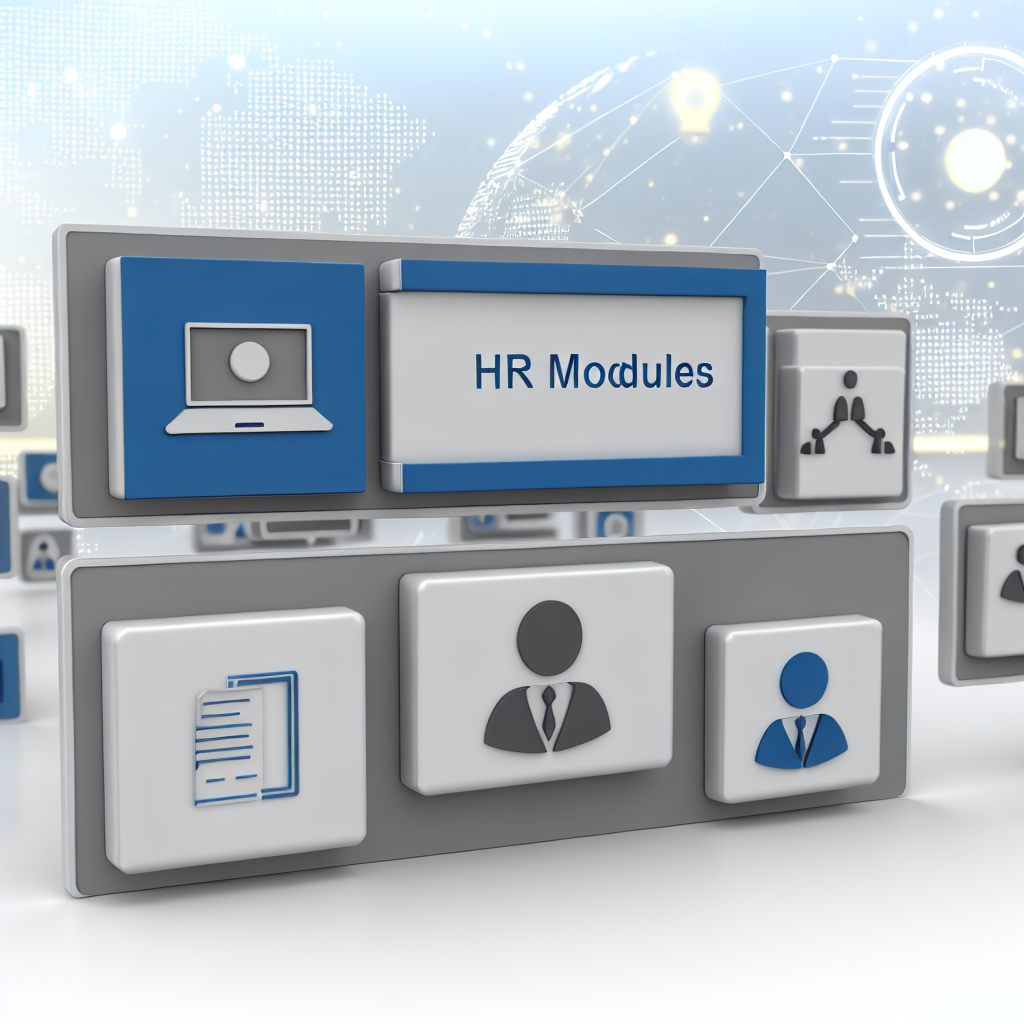
In an era where the dynamics of the workplace are rapidly transforming, the implementation of Human Resource (HR) modules within Enterprise Resource Planning (ERP) systems has become essential. These modules facilitate the effective management of HR functions, providing HR professionals with the tools they need to oversee the entire employee lifecycle efficiently. In this article, we will explore the significance of HR modules, current trends, and the benefits they bring to organisational success.
The Significance of HR Modules
HR modules serve a critical role in demystifying HR processes by functioning as a centralised repository for employee information. They help streamline operations by allowing authorised personnel to easily access and manage employee profiles, organisational charts, and various HR workflows. Here, we discuss the primary significance of HR modules.
Centralised HR Management
The first major benefit of HR modules is centralised HR management. These software components ensure that all employee information is housed in a single location, facilitating easier updates and access to vital data. This feature is invaluable during processes such as promotions, transfers, and terminations, enhancing overall efficiency.
Integration with Other ERP Systems
Another crucial aspect is the seamless integration of HR modules with other ERP systems. This capability enables companies to utilise employee data across various business processes, generating comprehensive reports and analytics. By amalgamating HR and ERP data, organisations gain a more rounded view of their operations, which can inform strategic decisions and improve collaborative efficiency.
Current Trends in HR Modules
As we delve deeper into how HR modules are evolving, several key trends have emerged that shape their functionality. These trends highlight the need for flexibility, employee wellness, and data-driven analysis within HR practices.
Cloud-Based HR Solutions
One of the most notable trends is the shift towards cloud-based HR solutions. Many significant ERP vendors are now integrating standalone HR modules with their existing systems, capitalising on modern cloud capabilities. This architectural model empowers businesses with the tools needed to support cutting-edge processes while maintaining costs and efficiency.
Emphasis on Employee Well-Being and Mental Health
The importance of employee well-being has taken centre stage in recent years. HR departments are increasingly prioritising initiatives such as employee assistance programmes (EAPs), mental health resources, and flexible work arrangements. By fostering an environment focused on employee wellness, organisations can help prevent burnout and boost productivity.
Agile Performance Management
Moreover, the trend towards agile performance management continues to gain traction. This approach emphasizes continuous feedback, real-time monitoring, and collaborative goal-setting processes. By integrating frequent check-ins and peer feedback mechanisms, HR modules enhance employee engagement, further driving personal and professional development.
Key Benefits of HR Modules
To grasp the full value of HR modules, let us explore their key benefits in enhancing human resource management within organisations.
Automation of Administrative Tasks
One of the most significant advantages of HR modules is their ability to automate administrative tasks. By eliminating time-consuming processes like attendance tracking and payroll management, these modules minimize human error and permit HR teams to devote more time to strategic planning and employee relations.
Employee Engagement and Retention
Effective HR modules play a significant role in fostering employee engagement. Tools such as career development frameworks, recognition programmes, and flexible benefits can lead to higher employee loyalty and lower attrition rates. Engaged employees are often more productive and committed to their organisations, which ultimately benefits the business.
Data-Driven Insights
In today’s data-centric landscape, HR analytics have become crucial for organisational success. With predictive HR tools, HR professionals can gain an in-depth understanding of employee performance metrics, engagement levels, and workforce trends. This data-driven approach enables organisations to make informed decisions about hiring, professional development, and retention strategies.
Enhanced Employee Experience
Investing in modern HR management systems also empowers HR professionals to craft a more personalized employee experience. By offering tools that support career development and mobile accessibility, organisations foster a culture of continuous improvement while enhancing employee satisfaction.
Synthesising HR Modules and Their Impact on Organisational Success
In summary, HR modules are indispensable tools for optimising HR functions, integrating with broader business processes, and enhancing employee experiences. The current trends reflect a commitment to cloud-based solutions, prioritisation of mental health, and agile performance management, while the benefits of these modules span from automation and engagement to data-driven insights.
For HR professionals, adopting these modules represents a significant step towards navigating the complexities of modern human resource management. The capability to centralise information, simplify processes, and derive actionable insights will not only streamline operations but also cultivate a thriving workplace culture.
Conclusion
The evolution of HR modules is a powerful testament to the changing landscape of human resource management. As the demand for more efficient, data-driven HR practices grows, organisations must adapt and implement solutions that support their goals and values. Those who embrace and evolve with these changes will undoubtedly position themselves for greater success in the competitive marketplace.
References
- TechTarget – “The ERP HR module: Key features explained” (2023-12-07)
- ClearCompany – “6 Benefits of Effective Human Resource Management” (2023-02-14)
- Qandle – “HR Dynamics: Exploring the Latest HR Trends” (2024-05-31)
- HumanResources.Report – “Why Is Modern HRMS Software Essential for Business Growth?” (2024-05-09)
- HRMorning – “HR Technology: The Latest Examples and Key Benefits” (2024-07-25)
By staying informed and adapting to the landscape of HR modules and their associated trends, HR professionals can lead their organisations towards successful outcomes and a fulfilled workforce.
Vadim Kouznetsov is a distinguished entrepreneur and the visionary founder and CEO of JobXDubai.com, the UAE’s rapidly expanding job board. Renowned for his expertise in bridging the gap between job seekers and employment opportunities, Vadim has become a leading authority in the recruitment and job market of Dubai.
